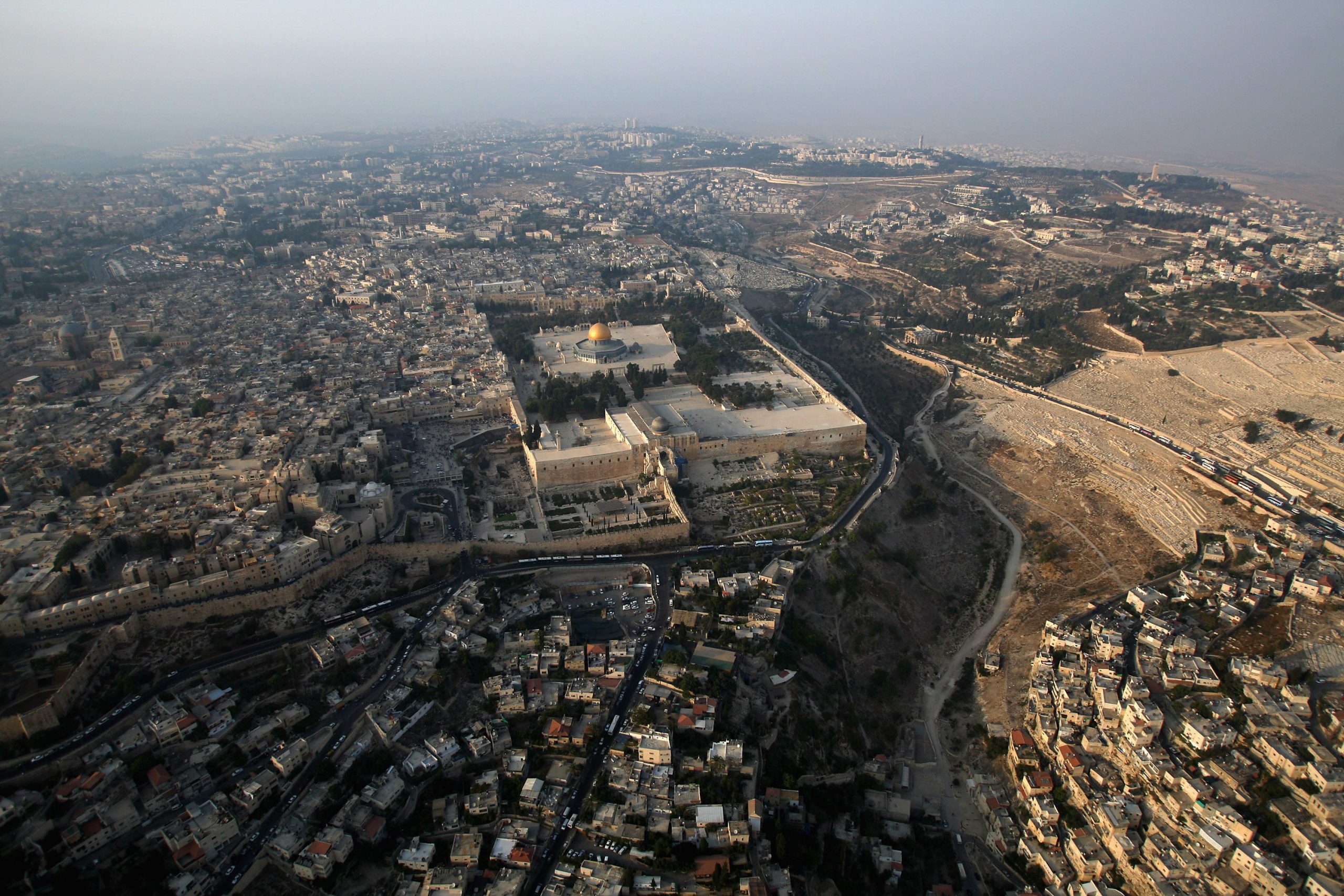Monday, August 7

TENSE TERRITORIES
Jordanian king makes rare visit to Ramallah for talks with Abbas

Jordan’s King Abdullah will travel to the West Bank today to meet Palestinian President Mahmoud Abbas in Ramallah.
Talks are expected to focus on heightened tensions with Israel. Violence flared between Palestinians and Israelis in the disputed capital of Jerusalem last month. After 10 days of clashes, six people were killed and scores injured. Meanwhile, last weekend a guard at the Israeli embassy in Amman opened fire after being attacked with a screwdriver, killing two Jordanians.
The recent violence has strained ties between the two Arab nations and Israel to their worst point in years. Indeed, Mr Abbas has cut off all communication with Israeli authorities and is therefore unable to leave the West Bank (Israel controls the border on all sides). Abdullah has pledged to make a rare trip to the Palestinian Territories instead, in what a Palestinian spokesperson said was “a visit of solidarity and coordination”.
While tension in the region is nothing new, the current state of affairs bodes extremely poorly for the resumption of Israeli-Palestinian peace talks—something US President Donald Trump had made a priority.
DOWN BUT NOT OUT
Experts discuss lessons learned from Zika virus

Health experts from around the world will gather in Havana today for the 15th International Dengue Course. Sponsored by the WHO, combatting the Zika virus will top the agenda.
Last November, the WHO declared an end to the public health emergency the virus, which leads babies to be born with brain defects, caused in Latin America. Brazil saw cases plummet by 95% in the first four months of 2017 following a successful mosquito extermination program (the bloodsuckers are a major transmitter of the virus).
Yet, while much subdued, Zika remains a threat throughout the Americas. In the US, recent weeks have seen the year’s first transmissions via mosquito in Texas and via intercourse in Florida, signalling the virus still has the potential to spread.
Even if Zika continues to decline, its true effects may not be felt for years. As the virus’s primary danger is to babies of the infected, government advice to avoid pregnancy could hit birth rates. Zika could then be an accomplice to a future economic ailment: an imbalance of young workers and aged pensioners.
EXCERCISING SOVEREIGNTY
Qatar and Turkey complete joint military exercise

Joint Qatari and Turkish land and sea military exercises will draw to a close today, overseen by top commanders from both countries. The demonstrations of force indicate a resistance to demands which infringe on Qatari “sovereignty” from blockading Arab states.
While Turkey has maintained a base in Qatar since 2014, troop deployments to the Gulf have accelerated substantially from the 100 soldiers stationed there before June’s diplomatic crisis. On July 31, 200 troops landed in Doha aboard the TCG Gokova to take part in the week-long ground and naval exercises.
Close ties between Turkey and Qatar have been fostered by shared support of Islamist politics throughout the region. Turkish President Recep Tayyip Erdogan has suggested Ankara could mediate the Gulf crisis, but Saudi Arabia and the UAE may doubt Turkish neutrality.
Turkey, like Qatar, funds Islamist groups such as the Muslim Brotherhood—the abolition of which is a key subject of demands from the Saudi-led bloc. In Libya last week, Qatar and Turkey were accused of supporting “terrorists” rebelling against the eastern-led government; Islamist aid programs are now under direct fire and international pressure may knock them out.
HAPPENING ELSEWHERE…

Talks will continue among ASEAN foreign ministers gathered in Manila. Today’s discussions are expected to focus on countering extremism—a growing problem in the region. Delegates are expected to focus on a mechanism to coordinate countering online radicalisation.
OPEC members and their non-OPEC partners will meet in Abu Dhabi to review compliance with production cuts that came into effect at the start of the year. Despite relatively high compliance for the past eight months, oil continues to trade at around $50 a barrel. This suggests OPEC has lost much of its ability to be a price setter.

